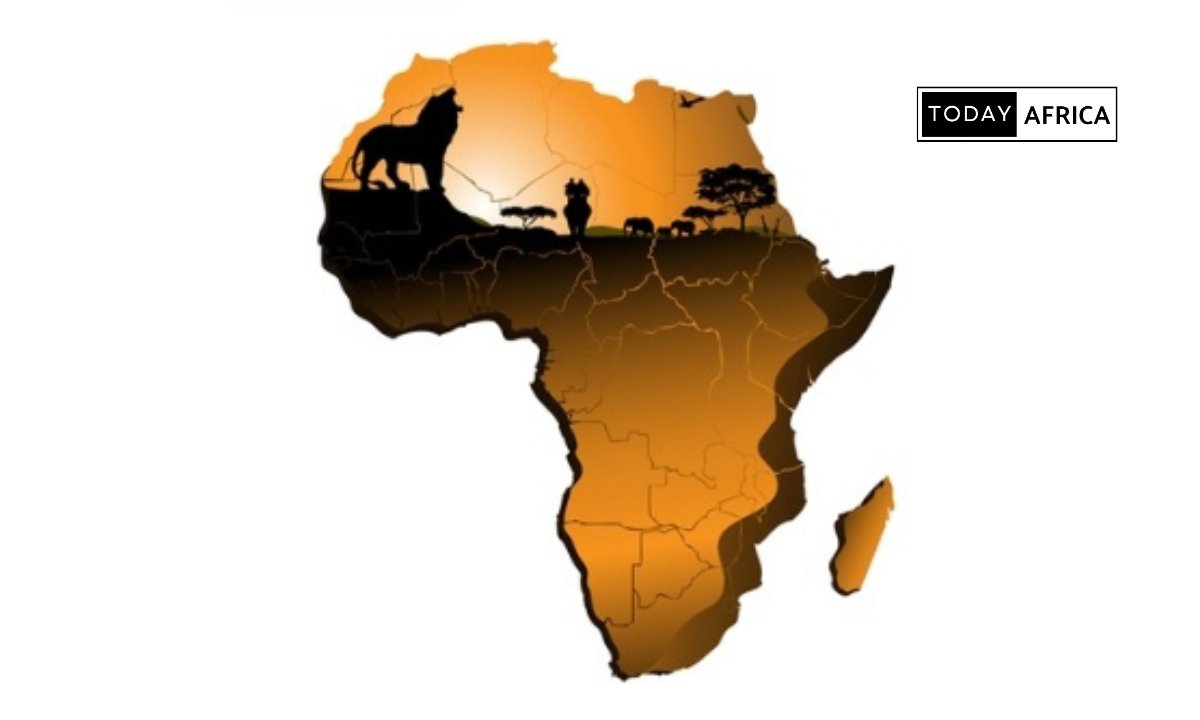Ifeoma Uddoh is a social entrepreneur and the founder of Shecluded, a female-focused venture company dedicated to creating economic prosperity for women through access to financial services.
Her journey is inspirational, especially considering the personal experiences that motivated her to start Shecluded. Her story of witnessing her mother’s struggles after her father’s death and the subsequent challenges women face in accessing credit resonates with many and adds a human touch to her entrepreneurial venture.
The challenges Ifeoma Uddoh faced as a female founder and CEO in the fintech space, particularly the need to upskill in technical areas and the initial skepticism around a female-focused company, highlight the resilience required in such a competitive industry. Her approach of using personal funds to prove the concept and attract initial clients is a testament to her commitment and belief in the cause.
The insights into fundraising strategies, emphasizing the importance of revenue as a sustainable source of funding and leveraging personal and professional networks, provide valuable lessons for aspiring entrepreneurs, especially in regions where access to funding can be challenging. We’re happy to share this with you but before you read, check out part one of this interview.
What Lesson Have You Learned as an Entrepreneur Running Shecluded?
One, I feel the glamour of entrepreneurship. So sometimes when you see my pictures online, it’s nice and everything. But everyday entrepreneurs that are trying to make a difference in a country like Nigeria, when you see them squeeze money in their hand, okay?

They’re really suffering. I think that that’s the thing. The glamour of entrepreneurship. And the act of entrepreneurship is different from the work of entrepreneurship. The work is difficult. Do you understand? I think that that’s one thing that I’ve been trying to learn on this journey.
And the work is hard. In the work you have to deal with a lot of things that you see are the problem with Nigeria. For example, I feel that there is dwindling human resources based on the fact that something happened to our education system and nobody was paying attention. I feel that the business conditions have not improved.
And so you see running a business is making me see the effect of how the nation affects your doing business. I have a customer, for example, who has been baking cakes for the last 10 years. And I think last year she closed down her business. And when I was talking to her, she said, you know, the floor price went up by 150% .
Some of the things that they used to get went up. And she just noticed that numbers were not like adding up again. And she just felt, you know what, instead of trying to mix so many things to do this thing. She just felt that this was the best time for her to try and do something else.
Being a Mom is a Full-time Job. How Do You Manage Your Work as a Mom and Your Work as a CEO? How Do You Manage Your Time Effectively?
Time management? If I should give you a theory answer to be a theory answer, the truth is that I don’t. I think about how I want to exit this world? And I feel that I want to exit this world having given all that I have in different areas, whether as a wife, a mom. Different areas of my life that I showed up, I want to do my best. And that includes being a mom.
So I know there’s something that my mentor taught me. He says quality sometimes over quantity. So whenever I spend time with my children, I’m very intentional about it. I notice that I do have a responsibility to bring people into the world. So I have to pay attention. Sometimes I drop the ball, but I’ve learned to wake up the next day and say, you know what, today I’m going to do better.

I think that’s it. Also there’s some opportunities that I see maybe being away for six weeks, eight weeks. Some of the time I’ll say, oh yeah, I can work with this. Sometimes I’ll say, ah, no, no, no, I’ve been away for a long time.
It always depends on the individual and the circumstances and what you are willing to give. But I noticed that most times they give and take stuff. So I always fight for balance. Although sometimes I find that there is no such thing as balance. To be very honest, having a supportive partner, my husband helps me out. And he’s not very critical when I make mistakes. So having that also helps. And having a nation of people that help you. My sisters, my mom, my friends, my in-laws.
I see people just show up for me. So it makes me remember that why it was easy in those days was that the community trains the child and not just the parents. So trying to incorporate that lifestyle intentionally can help.
Maintaining a Positive and Productive Work Environment is Very Crucial. What Specific Practices Have You Implemented to Foster Collaboration and Positive Culture in Your Company, Shecluded?
One is the fact that as a CEO, I think I’m easily accessible. I feel that what that does, it’s just being able to make sure that people have the courage to see their fears, their plans, and I feel that employee-employer relationship is a give and take.
So I mean, on my team, I know who wants to travel. I know who is looking for a husband or not, or always looking for a wife. I’m making you realize that I also care. I know who wants to be famous. So sometimes I’ve said, hey, you want to be famous, be the face of the company, do this ad and do this thing. I know who wants to write.
Sometimes I intentionally say, hey, because you want to write a book and you’re going to be an entrepreneur, I think you should be doing this kind of role. And I think genuinely people see it and they like it. I think that that’s it. But other times it can be tricky, balancing all that and goals.
How Are You Doing Today and What Does the Future Look Like for Shecluded?
It’s the beginning of the year and I’m very excited about 2024. I love the fact that we’ve met some milestones that put us as one of the biggest start-ups that fund women entrepreneurs. I like the fact that women come into our space and they say one or two things and meet their friends. So we’ve also been able to provide women somewhere that they feel that is part of their own.

Where do we want to be in the future? We want to be a Pan-African finance company that women entrepreneurs can run to and get the assistance and the financing they need. Not the one that is like audio that is on textbook and is on press releases but never gets to them. But the one that actually works. So that’s what our future looks like.
What’s Your Advice to Women on Financial Independence?
Every time I hear that independence word, it always feels like… I don’t know what it is. But on owning your financial journey, my advice is that finance is a key part of your journey as a human being, whether it’s a man or a woman.
So before you outsource it, because I was talking to one lady that was in her 50s, or yeah, 59 or 55. And she was telling me, and I said, hey, you’ve never traveled. She now said, yes. I said, why? I mean, you’ve had the opportunity. And she said that she thought at some point her husband would take her to travel. And I said, you outsource, I mean, she’s divorced though, you outsource your dream, your ambitions, your secret thoughts to a guy and you never voiced it out.
Now what if somebody has told you that you can take yourself to travel. And immediately I saw her face light up and she went to get a passport. She hasn’t traveled, but at least she has a passport. Two of her kids went for masters.
Being able to tell women that money is a key part of your experience on earth and you need to figure out quickly how you want to make that money. And one of the easiest ways that gives you security is to know that you know how to make it by yourself.
What Advice Would You Give to Africans, Especially Women, Who Are Starting Their Business?
It looks glamorous. Trust me. I see a lot of people say, Oh, I saw you here, here, here. And I’m like, gosh, maybe that day it’s a business. My main advice is to do something that you’re passionate about that can make money. You know, when passion and money combined, it keeps you here in the long term.
So the passion and money keeps you alive. Then knowing your strength and your weakness helps you know who you need on the team. You need to date yourself a lot to know yourself and say, this is what I need. And this is what I don’t need. I realized that as an entrepreneur, you need to be that very, very clear with yourself.

I noticed I don’t like filling in long forms and I had an EA and when I was talking to her. She said, I don’t like feeling forms. And in my mind, I’m like, wait, how did this pass the HR? So that moment in time is when I knew that. Surround yourself with people that come to places that you don’t like. I had a marketing lead then and she noticed that if you leave me, I’ll just be working and just focus on the work. And she’s like, no, no, Ifeoma you always have to show up here, this appointment, to show up here, you do this, you do that. So it makes you whole in a way.
Quick 5 Questions With Ifeoma, Shecluded Founder
1. What is the African country that you want to visit and why?
I went to Kenya last year and I liked it. South Africa is something that I would like to visit because I don’t know, everybody feels like South Africa is Africa and South Africa says they’re not Africa. So I would like to see what they have.
2. What is the most underrated Nigerian food?
It’s not eba and soup (laughs)
It depends on the soup.
Bitter leaf soup.
3. How do you look after yourself in your free time?
You know I’m a mom and an entrepreneur. I like doing nothing, just lying down in a white hotel, doing nothing with white bed sheets. Everywhere whites and just doing nothing. Boring, I told you, my best times are when I’m not doing anything. Think about it, I have four kids. So I’m always doing something.
4. What have been the most humbling moments in your journey as an entrepreneur?
I think the most humbling moment for me has been when I get feedback from a client that says, hi, you changed my life. And most times I think it’s when it’s not about money, it’s about maybe something that you said or you did at one point. So it made me very, very intentional about knowing that when you interact with people, you’re sowing seeds. And sometimes that might be the only seed that that person needs to stand up.
5. What’s one thing that you love people to know about you?
One that I love people to know about me is that I love what I do.
Thank you and we appreciate you for being on the show.
















